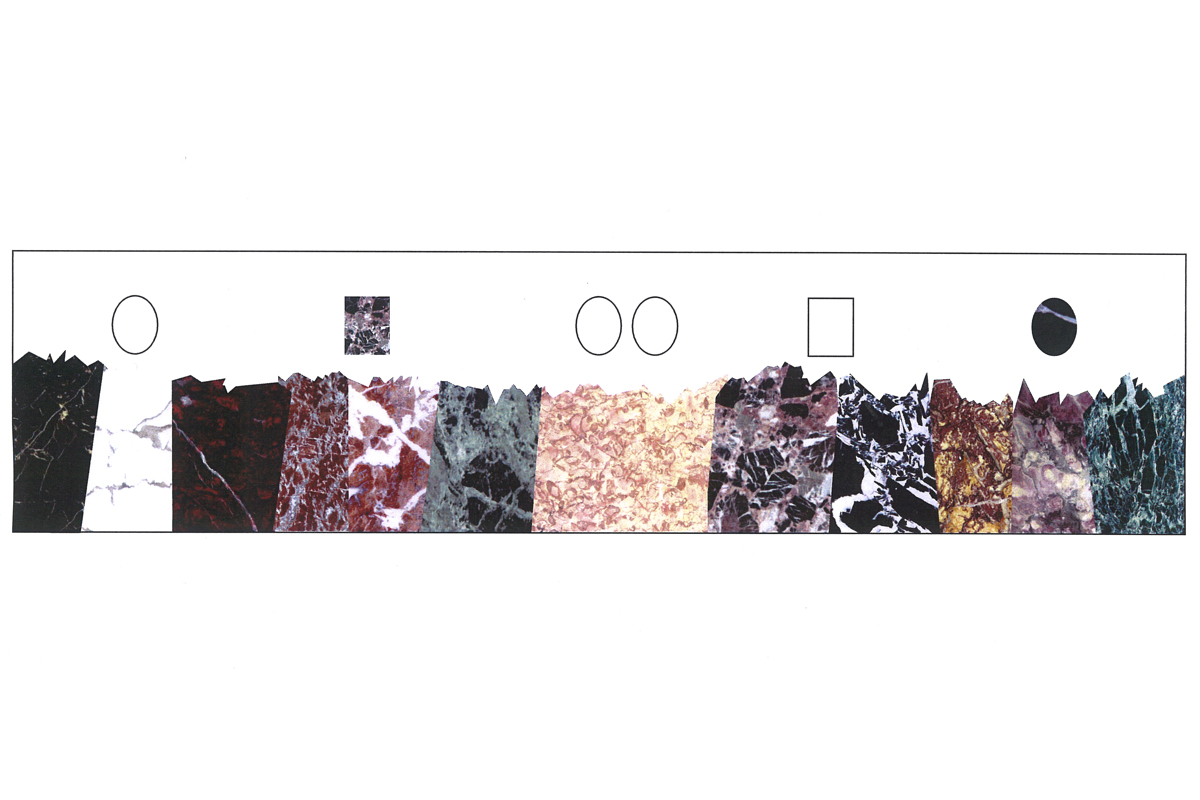Press release from the Château de Versailles, June 20th 2014
On the
occasion of the extensive redevelopment work being done on the Dufour Pavilion
which will be opening late in 2015 to provide better reception facilities for
individual visitors, it is the proposal by artist Claude Rutault, a
contemporary French painter, that has been selected. The work will be installed
in the passageway on level -1 near the visitor exit into the gardens. It is
entitled “- de la peinture, sire ...” and will provide the perfect fit with its
surroundings.
Claude
Rutault's work employs a vocabulary which he establised 1973 in de-finition/
method 1: “a stretched canvas painted the same colour as the wall on which it
is hung. All commercially available formats can be used, be they rectangular,
square, round or oval”. This use of identical colour on canvas and wall has
produced some 580 such de-finitions/methods. Rutault’s writings provide a set
of instructions for these ever-evolving works that are “actualized” by the
“charge-taker” (collector, museum, etc.). True to his idea of works never being
finished, in 1995 Claude Rutault began repainting all his works from before his
canvases in the same colour as the wall. The artist has also extended his
approach beyond this strict wall/canvas relationship, with piles of canvases,
canvases placed on the floor or against picture rails...
The work
designed by Claude Rutault comprises a series of panels of differents marble
with an irregular cut. The wall on which they are hung is painted in a colour
very close to the tone of the place. Three panels painted in the same colour as
the wall and two panels of marble are installed above. This dialogue between
marble and painting expresses the artist’s focus on the combination of painted
and non-painted.
Claude Rutault : “this is a half-way house, between the rooms of the Palace we have
just walked through and the grounds just a few steps away. It is a place of
passage, an interlude between inside and out, and that is how I would like to
position my work, as a transition between two worlds which in reality form just
one. The Palace, its opulent rooms laden with historic décors, and the grounds
that are an extension of that indoor world without any real break between the
two, with their sculptures and groves, views and fountains, enthralling eye and
ear alike when the waters are in full flow. This is done using materials that
are present at Versailles, combined with painting and all the questions it
raises in such a place. Showing what a painting can be, following in the
footsteps of the past. Just spectacular enough, for this is Versailles, yet
without becoming demonstrative. Putting this message across in a pictorial
proposition that reaches beyond period and style. A modern-day painting that
legitimises that of the past, rather than the other way round, always knowing
that it is impossible to paint without being aware of the past that has led up
to the present day. Endowing this painting not only with a raison d’être, but
with a reason for being here and now.”

